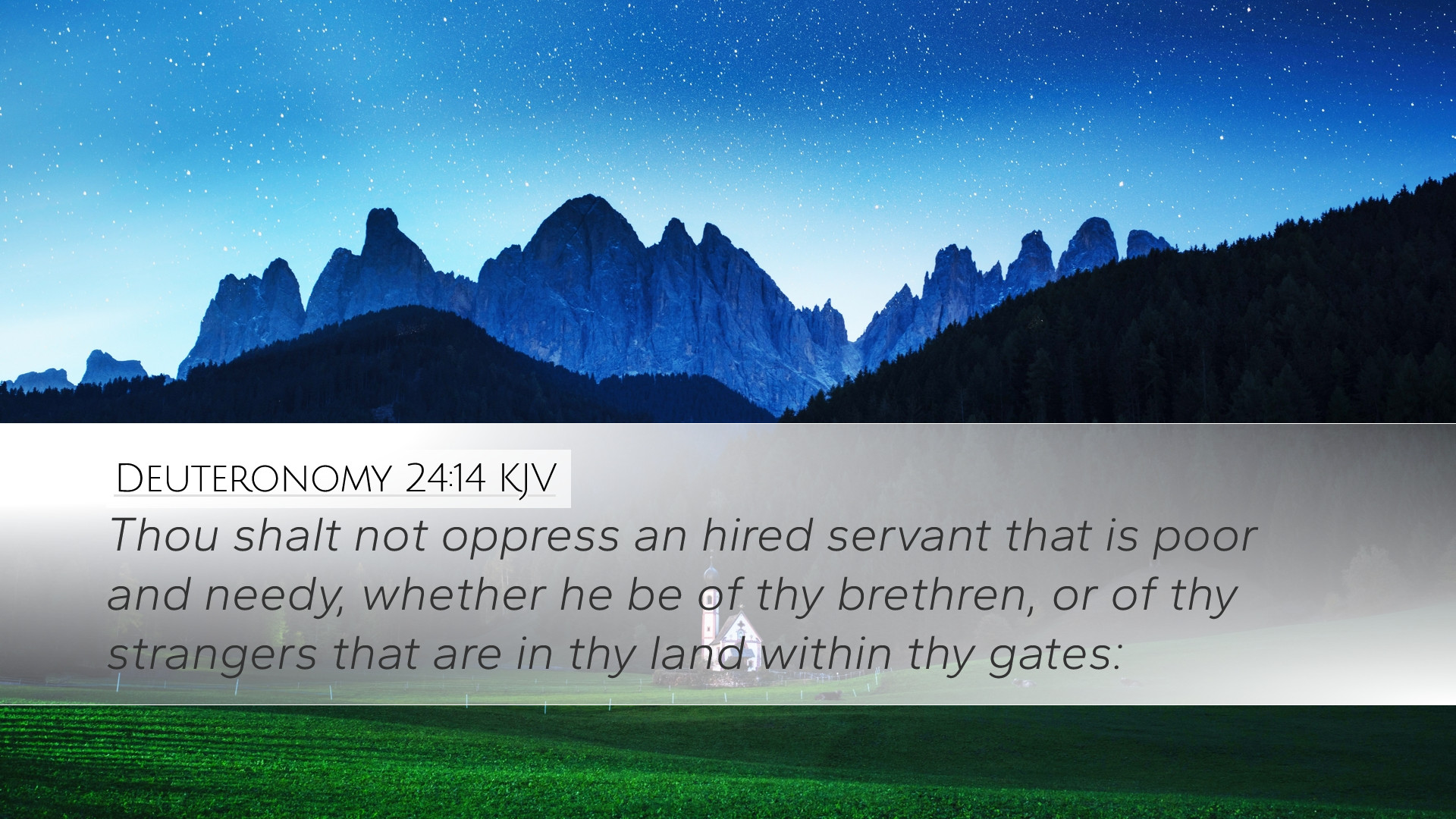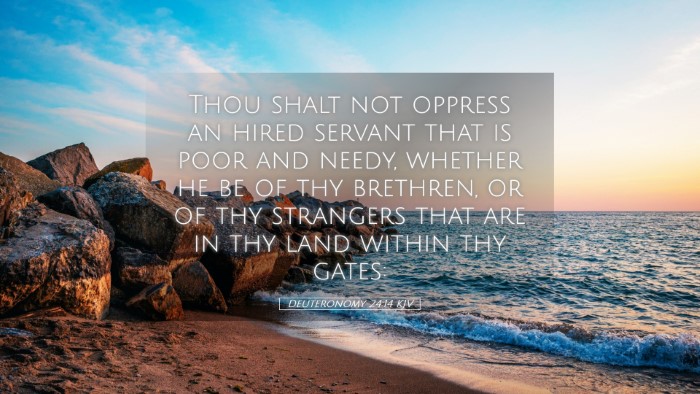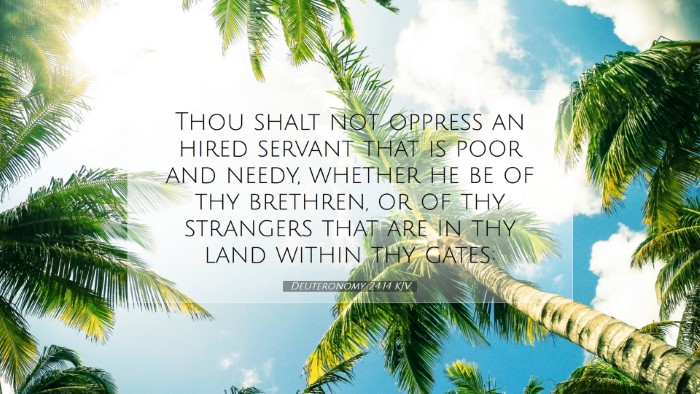Commentary on Deuteronomy 24:14
Verse Analysis: Deuteronomy 24:14 states:
"Thou shalt not oppress an hired servant that is poor and needy, whether he be of thy brethren, or of thy strangers that are in thy land within thy gates."
This verse underscores God's concern for justice and compassion toward the vulnerable, especially regarding laborers who often find themselves in precarious situations.
Insights from Public Domain Commentaries
Matthew Henry's Commentary
Matthew Henry emphasizes the moral duty of the employer towards his workers. He points out that a hired servant, particularly one who is poor and needy, is often in a vulnerable position. The misuse of power and exploitation are condemned in this passage, as it illustrates God's desire for equity and fairness. Henry notes that:
- The word “oppress” signifies the unjust treatment or exploitation of the laborer. To oppress them is to deny them their rights and needs.
- The use of the terms “thy brethren” and “strangers” indicates that the command extends to all, regardless of their social or ethnic backgrounds, highlighting the universal applicability of this principle.
Henry argues that social responsibility is a key aspect of godliness, urging believers to treat all workers with dignity and respect, and reminding them that they too are accountable to God for their actions.
Albert Barnes' Notes on the Bible
Albert Barnes provides additional layers of understanding to this verse by interpreting it within the context of Hebrew social structures. He notes:
- The phrase "hired servant" refers specifically to those employed on a temporary basis, who often lack the security that comes with permanent employment. Therefore, they should not be subjected to harsh treatments.
- Barnes highlights that the poor and needy should be treated with special care, as they are in the most vulnerable positions, suggesting that justice is not merely about equal treatment, but also about recognition of varying needs.
He connects this directive with the larger theme of social justice within the Mosaic Law, stressing that God’s law is integrally intertwined with ethical treatment of workers. The societal implications of such behavior reflect God’s character and His expectations for His people.
Adam Clarke's Commentary
Clarke delves into the historical and ethical dimensions of this command, noting that:
- The command serves as a protection for the working class, offering them rights that were often overlooked in ancient societies. Clarke highlights that it is reflective of God's overarching concern for justice.
- He explains that "oppression" should also be understood as any act that may lead to the dehumanization of the worker, including withholding wages and failing to provide adequate treatment.
Moreover, Clarke argues that the social and economic implications of this passage remain relevant today. The essential call for equitable treatment of workers illustrates timeless ethical principles that should guide modern employers and employees alike.
Theological Implications
The theological implications of this verse are profound, as it reflects God's character as a just and caring deity. The ethical treatment of others, particularly those in vulnerable positions, is central to the biblical faith. This command serves as a reminder of the following:
- God's Justice: The demand for just treatment reinforces God's justice, which is foundational to the workings of His kingdom.
- Human Dignity: This verse underscores the principle that all humans, regardless of circumstance, possess inherent dignity and are worthy of respect and fair treatment.
- Community Responsibility: It calls the faith community to be responsive to the needs of the less fortunate, thus fostering an environment of mutual care and support.
Practical Applications
For pastors, students, theologians, and scholars, this passage has several practical applications:
- Preaching and Teaching: This verse can be integrated into sermons that emphasize social justice, the importance of ethical behavior in business practices, and God's care for the disenfranchised.
- Policy Development: For those in church leadership, it sparks discussions on policies and practices that promote fair labor, equitable wages, and the protection of workers' rights.
- Personal Reflection: For individuals, this passage encourages self-examination of one's treatment of others, particularly in professional settings, prompting a commitment to fairness and ethical conduct.
Conclusion
Deuteronomy 24:14 challenges readers to recognize their responsibility towards the vulnerable in society. Through insights from reputable commentators, we see the text’s demand for compassion and justice resonating throughout the ages. All believers are called to embody these values in their spheres of influence, reflecting God’s nature through their relationships and interactions.


